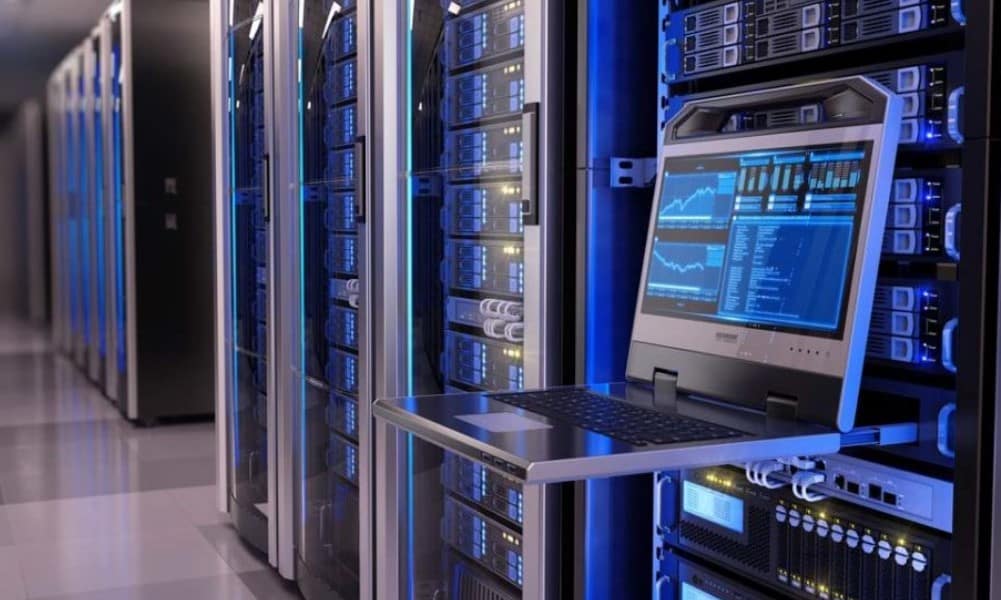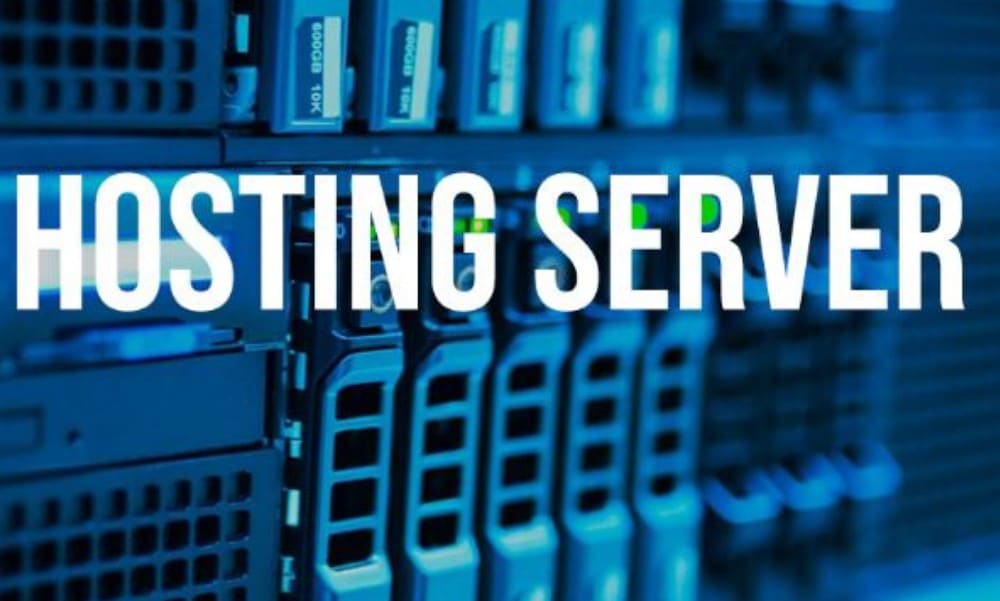In today’s fast-paced digital landscape, having a reliable and high-performing website is crucial for any online business. A slow or unresponsive website can lead to lost customers, decreased conversions, and a negative impact on your brand’s reputation.
To avoid such consequences, it’s essential to invest in a robust and scalable infrastructure that can handle increased traffic and demands. One of the most effective ways to achieve this is by opting for high-end dedicated server hosting.
What is High-End Dedicated Server Hosting?

High-end dedicated server hosting is a type of hosting solution that provides a single physical server dedicated to a single customer or organization.
This means that you have full control over the server, its resources, and its configuration, allowing you to customize it to meet the specific needs of your business.
High-end dedicated servers are typically equipped with powerful processors, ample storage, and high-speed memory, making them ideal for businesses that require exceptional performance and reliability.
This type of hosting is designed for large-scale businesses, enterprises, and organizations that require unparalleled performance, security, and customization. High-end dedicated servers are typically high-performance machines with advanced hardware and software configurations, including:
- High-core count processors
- Large amounts of RAM (up to 256GB or more)
- Fast storage options (SSDs, NVMe, or high-capacity hard drives)
- Advanced network infrastructure (10GbE or higher)
- Enterprise-grade operating systems (Windows or Linux)
- Advanced security features (firewalls, intrusion detection, and encryption)
Benefits of High-End Dedicated Server Hosting

High-end dedicated server hosting is a premium type of web hosting that offers unparalleled performance, security, and customization.
When compared to shared hosting or cloud hosting, high-end dedicated server hosting provides a unique set of benefits that make it an attractive option for large-scale businesses and organizations. Here are some of the benefits of high-end dedicated server hosting:
Unparalleled Performance
High-end dedicated servers are designed to provide exceptional performance, making them ideal for businesses that require fast loading times, high-traffic websites, and demanding applications. With high-performance processors, advanced storage options, and high-speed network infrastructure, high-end dedicated servers can handle massive amounts of data processing and traffic with ease.
Enhanced Security
High-end dedicated servers offer advanced security features that go beyond what is typically offered by shared hosting providers. With firewalls, intrusion detection systems, and encryption protocols, high-end dedicated servers provide an added layer of protection against cyber threats.
Additionally, with a dedicated server, you have complete control over the server’s configuration, allowing you to implement custom security measures tailored to your business needs.
Customization
High-end dedicated servers can be customized to meet specific business needs. This means you can choose the operating system, software, and hardware configurations that best suit your business requirements. Whether you need a specific database management system or a custom-built application, high-end dedicated servers provide the flexibility to accommodate your unique needs.
Scalability
High-end dedicated servers are designed to grow with your business. With scalable configurations and upgrade options, you can easily increase or decrease resources as needed. This means you can quickly adapt to changes in traffic or demand without having to worry about downtime or performance issues.
Priority Support
High-end hosting providers typically offer priority support for their high-end clients. This means you’ll have access to dedicated account managers, 24/7 technical support, and rapid issue resolution. With priority support, you can rest assured that any issues will be addressed promptly and efficiently.
Redundancy and Reliability
High-end dedicated servers often come with redundant components, ensuring that your server remains available even in the event of hardware failure. Additionally, high-end hosting providers typically have multiple data centers and networks in place, providing an added layer of redundancy and reliability.
Total Control
With a high-end dedicated server, you have complete control over the server’s configuration, allowing you to make changes as needed. This level of control is not possible with shared hosting or cloud hosting services.
In conclusion, high-end dedicated server hosting offers a unique set of benefits that make it an attractive option for large-scale businesses and organizations.
With unparalleled performance, enhanced security, customization options, scalability, priority support, redundancy and reliability, and total control, high-end dedicated servers provide the ideal environment for businesses that require exceptional performance and security.
Key Consideration of High-End Dedicated Server
When considering high-end dedicated server hosting, it’s essential to carefully evaluate the key factors that will ensure your business achieves its goals.
With so many options available, it’s crucial to weigh the pros and cons of high-end dedicated server hosting to make an informed decision. Here are some key considerations to keep in mind:
1. Hardware Configuration
High-end dedicated servers are built with top-of-the-line hardware, but it’s essential to consider the specific configuration that best suits your business needs. Key factors to consider include:
- Processor: Choose a processor that meets your specific requirements, such as multi-core processors or specific architectures.
- RAM: Ensure you have sufficient RAM to handle your workload, taking into account factors like memory-intensive applications and concurrent users.
- Storage: Decide between SSDs, NVMe, or high-capacity hard drives based on your data storage needs and performance requirements.
- Network: Consider the network infrastructure, including bandwidth, speed, and redundancy, to ensure reliable connectivity.
2. Operating System
Choose an operating system that aligns with your business requirements and expertise. Popular options include:
- Windows Server: Ideal for businesses that require Windows-based applications and services.
- Linux: Suitable for businesses that prefer open-source solutions and have experienced Linux administrators.
- Custom OS: Some providers offer custom OS configurations, allowing you to create a tailored environment.
3. Security
High-end dedicated servers come with advanced security features, but it’s crucial to consider additional measures to ensure optimal security:
- Firewalls: Implement firewalls to control network traffic and block malicious activities.
- Intrusion Detection/Prevention Systems (IDS/IPS): Monitor and prevent potential threats in real-time.
- Encryption: Use encryption protocols to protect data both in transit and at rest.
- Regular Updates: Ensure you keep your server’s software up-to-date with regular updates and patches.
4. Scalability
High-end dedicated servers are designed to grow with your business. Consider the following:
- Resource Scalability: Ensure the server’s resources (CPU, RAM, storage) can be scaled up or down as needed.
- Upgrade Paths: Choose a provider that offers easy upgrade paths for hardware and software components.
- Network Scalability: Verify the network infrastructure can handle increased traffic and bandwidth demands.
5. Support and Maintenance
Dedicated servers require regular maintenance to ensure optimal performance. Consider:
- Priority Support: Opt for a provider that offers priority support for critical issues.
- Scheduled Maintenance: Plan for regular maintenance windows to ensure server downtime is minimized.
- Proactive Monitoring: Choose a provider that proactively monitors server performance and addresses issues before they become critical.
6. Uptime and Downtime
Downtime can be costly for businesses. Consider the following:
- Uptime Guarantees: Look for providers that offer uptime guarantees and service level agreements (SLAs).
- Redundancy: Ensure the provider has redundant components and systems in place to minimize downtime.
- Disaster Recovery: Develop a disaster recovery plan with your provider to ensure business continuity in the event of unexpected outages.
7. Pricing and Budgeting
High-end dedicated servers come at a cost. Consider the following:
- Initial Cost: Calculate the initial cost of purchasing or leasing a high-end dedicated server.
- Ongoing Expenses: Factor in ongoing expenses such as maintenance, upgrades, and support.
- ROI Analysis: Conduct a return on investment analysis to determine if high-end dedicated server hosting aligns with your business goals.
Features to Look for in a High-End Dedicated Server
When selecting a high-end dedicated server, there are several key features to consider to ensure you’re getting the best possible performance, security, and support. Here are some essential features to look for:
- High-Performance Processors: Look for servers with the latest-generation processors from Intel or AMD, such as Xeon or EPYC, which offer improved processing power and efficiency.
- Large Storage Capacity: High-end dedicated servers often come with large storage capacities, such as 2TB or more, to accommodate large data sets and applications.
- Advanced Memory Options: Ensure the server has advanced memory options, such as ECC RAM, to prevent data corruption and improve system reliability.
- High-Speed Network Connectivity: Look for servers with high-speed network connectivity options, such as 10GbE or 25GbE, to ensure fast data transfer rates.
- Advanced Security Features: Look for servers with advanced security features, such as intrusion detection and prevention systems (IDS/IPS), firewalls, and encryption protocols.
- 24/7 Support: Look for a provider that offers 24/7 technical support, including phone, email, and chat support, to ensure that any issues are resolved quickly.
How to Maximize Performance with High-End Dedicated Server Hosting
- Choose the Right Configuration: Select a server configuration that matches your business needs, taking into account factors such as processor speed, memory, and storage.
- Optimize Server Configuration: Ensure the server is configured correctly by optimizing settings such as CPU priority, memory allocation, and disk usage.
- Monitor Performance: Regularly monitor server performance using tools like Apache logs, CPU usage monitors, and disk space analytics to identify areas for improvement.
- Implement Caching: Implement caching mechanisms such as Redis or Memcached to reduce database queries and improve page load times.
- Use Content Delivery Networks (CDNs): Use CDNs to distribute content across different locations worldwide, reducing latency and improving page load times.
- Optimize Database Performance: Optimize database queries and indexes to reduce query times and improve overall performance.
Conclusion
High-end dedicated server hosting is an excellent choice for businesses seeking exceptional performance, customization, security, scalability, and reliability.
By choosing the right configuration, optimizing server performance, monitoring usage patterns, implementing caching mechanisms, using CDNs, and optimizing database performance, you can unlock the full potential of your online business and ensure a competitive edge in the market.
In conclusion, if you’re looking to maximize performance with high-end dedicated server hosting, remember to consider the following:
- Choose a reputable provider offering high-performance servers with customizable configurations
- Optimize server configuration for maximum performance
- Monitor performance regularly using various tools
- Implement caching mechanisms to reduce query times
- Use CDNs to distribute content worldwide
- Optimize database performance for improved query times
By following these best practices, you can ensure that your website or application runs smoothly and efficiently, providing an exceptional user experience that drives conversions and grows your online business.
Conclusion
FAQs
Q1: How do I choose the right processor for my high-end dedicated server?
A1: When selecting a processor for your high-end dedicated server, consider the specific workload and applications you’ll be running. For example, if you’re running resource-intensive applications, a multi-core processor with high clock speeds may be necessary. Look for processors from reputable manufacturers like Intel or AMD, and consider factors such as hyper-threading, Turbo Boost, and cache memory.
Q2: What is the difference between SSDs and hard drives, and which one should I choose for my high-end dedicated server?
A2: Solid-State Drives (SSDs) are faster and more reliable than traditional Hard Disk Drives (HDDs). SSDs use flash memory to store data, resulting in faster read and write speeds, lower latency, and reduced power consumption.
Q3: How can I optimize my high-end dedicated server’s network configuration for maximum performance?
A3: To optimize your high-end dedicated server’s network configuration for maximum performance:
- Use a high-speed network interface card (NIC) with 10GbE or higher speeds.
- Configure Quality of Service (QoS) settings to prioritize critical traffic.
- Implement load balancing and redundancy to ensure failover capabilities.
- Utilize network acceleration technologies like TCP segmentation offloading (TSO) and large send offload (LSO).
Q4: What are some best practices for managing disk space on my high-end dedicated server?
A4: To effectively manage disk space on your high-end dedicated server:
- Monitor disk usage regularly using tools like df or du.
- Regularly clean up unnecessary files and directories.
- Implement a disk quota system to limit user storage usage.
- Consider implementing a data deduplication solution to reduce storage requirements.
- Plan for regular backups to ensure data integrity.
Q5: How can I ensure my high-end dedicated server remains secure and protected from threats?
A5: To ensure your high-end dedicated server remains secure and protected from threats:
- Implement a robust firewall configuration to control incoming and outgoing traffic.
- Install an intrusion detection system (IDS) and intrusion prevention system (IPS) to detect and block malicious activity.
- Keep your operating system and software up-to-date with the latest security patches.
- Implement strong password policies and two-factor authentication.
- Regularly monitor server logs for suspicious activity and investigate any potential security breaches.
